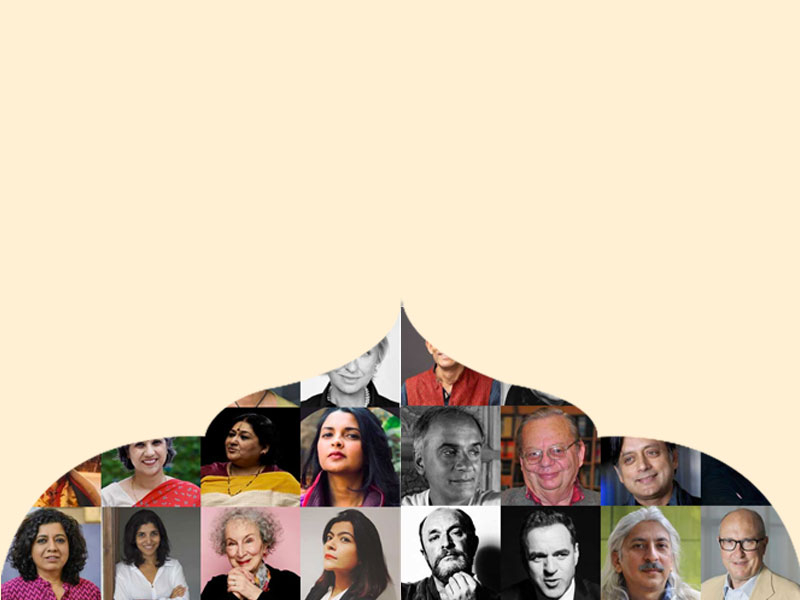Tune in for narratives critical to our times. Listen, ask and seek answers.
Watch NowThe Future of Economics: A Test of Resilience
As we approach the end of the lockdown in countries around the globe, one of the most pressing concerns of governments today is the revival of economic activities. In a session at JLF Brave New World, Indian economist & Observer Research Foundation Senior Fellow Mihir S. Sharma spoke to Zanny Minton Beddoes, editor-in-chief of The Economist, about how different economies have been going about the reopening process.
The status quo post-COVID will not be the same as pre-COVID, Beddoes maintained. Unless we have a vaccine which is widely administered, she said, there will be a need for social distancing and “many industries that depend on people being in close proximity to one another will operate in a restricted way- like hospitality, crowded bars, outdoor mass entertainment and tourism, which alone accounts for 7% of global exportsâ€.
The COVID-19 outbreak in the age of affordable travel and globalisation has posed an unprecedented challenge to mankind. Given that we still know only very little about the virus - with a lack of consensus on antibodies and re-infection, social distancing norms that vary from one country to another - there have been discrepancies between occupational safety regulations formulated by governments and those by private industries. The gap hardly surprised her, as “our knowledge about the disease is evolving and what is safe working practice is constantly changingâ€. She suspected that where we would see the difference between governments was in the actions of those that were more risk-averse and those less so. We are going to need experimentation and to learn from the experience of one country over another.
Sharma then steered the conversation towards the stimulus packages being doled out by governments around the world and brought up the Indian government’s plan which was “more of a relief package than a stimulus packageâ€. Beddoes agreed that the kind of money that richer economies like the UK and the US were putting on the table massively dwarfed the efforts of the emerging world. But that in itself wasn’t enough- Beddoes highlighted a downside to generous stimulus packages. “In the short-term, that is the right thing to do, but there are economies coming out of the lockdown which will need to be restructured or reallocated. In the long run, people whose jobs aren’t going to be viable need to move on to a different job, they will need to retrain. In Europe, we are on the cusp of a risk that some of this government support essentially would freeze an economy that isn’t going to come back,†she said, underscoring the need for flexibility and adaptability in times of uncertainty.
Perhaps frustratingly, said Sharma, the only country which might seem close to the 90% economy - an economy which isn’t the same as before but has seen a significant rebound - is China. “Are we talking about a further strengthening of their broad argument that their model of managing crises is better?†he asked.
Beddoes agreed that there had been a huge propaganda effort by the Chinese to deflect attention from the fact that they did cover up the virus in the beginning, and therefore bore some culpability for it.
“Secondly, it has been to show off the contrast between China’s handling in their own view and particularly the US’s, which in China’s telling would show how ‘abjectly useless’ democracy is,†said Beddoes, paraphrasing the Chinese. Despite the sense of pride and aggressive nationalism, she believed that the model didn’t hold much appeal, especially with the record high-handedness of the Chinese state-driven approach that has backfired, and the treatment of Africans within China.
For better or for worse, China’s role in the global supply chain has been called into question during the pandemic, as countries start asking themselves if it is prudent to rely on a sole purveyor of protective equipment. “It’s an important calculus for everyone to work out,†cautioned Beddoes, “how they want to deal with and depend on China.†How can countries stop relying so heavily on China then? With resilience, answered Beddoes, as resilience requires “diversification and regionalisation of supply chainsâ€. But it would be erroneous to equate it with producing everything at home - strategic autonomy, she warned, would radically undermine globalisation, which has brought benefits, especially to the emerging world.
The deeply informative session with the two economists arguing convincingly, if depressingly, ended on a somewhat positive note. Beddoes believed that the global halt on our economies was bound to induce decision-makers to think hard about the world they want to see after COVID-19. The pandemic has invariably brought us in confrontation with the uncomfortable realities of economic inequality, the precarious nature of individual freedom and inadequacies of our support systems. And like every watershed moment in history, only time will tell if we have the ability to emerge from this better, inclusive and more resilient.





Leave a comment